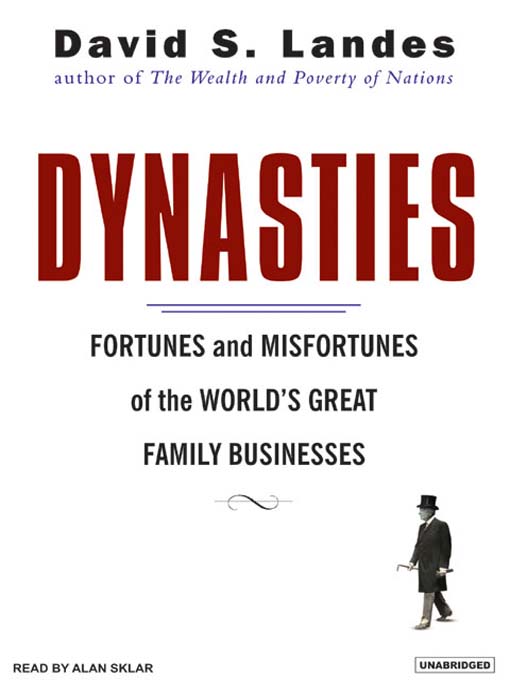
Dynasties
Fortunes and Misfortunes of the World's Great Family Businesses
کتاب های مرتبط
- اطلاعات
- نقد و بررسی
- دیدگاه کاربران
نقد و بررسی

Landes may be a Harvard professor emeritus, but this book on the most powerful family businesses isn't dry. As he tells the stories of the Rothschilds, Fords, and Rockefellers, Landes aims to capture individual personalities--both good and bad--while investigating the question of what makes family firms rise and fall. Alan Sklar's narration is understated, keeping the stories well paced but avoiding a salacious tone. He often makes it seem as if the listener is being told an anecdote by a friend. Although Landes includes business recommendations, the book is most successful at telling the stories behind the famous names. J.A.S. (c) AudioFile 2007, Portland, Maine

July 31, 2006
Beginning as a work of economics, moving through soap opera and finishing as history, this book tells the stories of 11 great family businesses in Europe, Japan and America with at least three generations of family control. Observing that the vast majority of businesses are family owned and run, historian Landes (The Wealth and Poverty of Nations
) argues that dynastic businesses offer a proven route to developing emerging markets, while companies managed by unrelated professionals and funded by public investors offer mostly bad jobs and slim profit shares to local employees. Even among the largest corporations, many retain significant financial and managerial involvement by the founder's relatives, and those that do perform better than the others. Landes's stories emphasize emotional life within these dynasties; he includes business details and general economic history only as context for family adventures and feuds. His emphasis is on how family considerations such as authority, love, trust, envy, marriage, adoption and succession determine the growth and direction of the business. While this may seem irrational compared to entrusting strategic decisions to specialized professionals selected according to talent rather than bloodline, Landes argues that family does a better job.

























دیدگاه کاربران